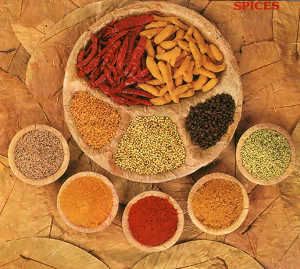 THUNDER BAY – Healthbeat – Curcumin, an active component of the Indian curry spice turmeric, may help slow down tumor growth in castration-resistant prostate cancer patients on androgen deprivation therapy (ADT), a study from researchers at Jefferson’s Kimmel Cancer Center suggests.
THUNDER BAY – Healthbeat – Curcumin, an active component of the Indian curry spice turmeric, may help slow down tumor growth in castration-resistant prostate cancer patients on androgen deprivation therapy (ADT), a study from researchers at Jefferson’s Kimmel Cancer Center suggests.
Reporting in a recent issue of Cancer Research, Karen Knudsen, Ph.D., a Professor of Cancer Biology, Urology and Radiation Oncology at Thomas Jefferson University, and colleagues observed in a pre-clinical study that curcumin suppresses two known nuclear receptor activators, p300 and CPB (or CREB1-binding protein), which have been shown to work against ADT.
ADT aims to inhibit the androgen receptor—an important male hormone in the development and progression of prostate cancer—in patients. But a major mechanism of therapeutic failure and progression to advanced disease is inappropriate reactivation of this receptor. Sophisticated tumor cells, with the help of p300 and CPB, sometimes bypass the therapy.
Thus, development of novel targets that act in concert with the therapy would be of benefit to patients with castration-resistant prostate cancer.
For the study, prostate cancer cells were subjected to hormone deprivation in the presence and absence of curcumin with “physiologically attainable’ doses. (Previous studies, which found similar results, included doses that were not realistic.)
Curcumin augments the results of ADT, and reduced cell number compared to ADT alone, the researchers found. Moreover, the spice was found to be a potent inhibitor of both cell cycle and survival in prostate cancer cells.
To help support their findings, the researchers also investigated curcumin in mice, which were castrated to mimic ADT. They were randomized into two cohorts: curcumin and control. Tumor growth and mass were significantly reduced in the mice with curcumin, the researchers report.
These data demonstrate for the first time that curcumin not only hampers the transition of ADT-sensitive disease to castration-resistance, but is also effective in blocking the growth of established castrate-resistant prostate tumors.
“This study sets the stage for further development of curcumin as a novel agent to target androgen receptor signaling,” said Dr. Knudsen. “It also has implications beyond prostate cancer since p300 and CBP are important in other malignancies, like breast cancer. In tumors where these play an important function, curcumin may prove to be a promising therapeutic agent.”
